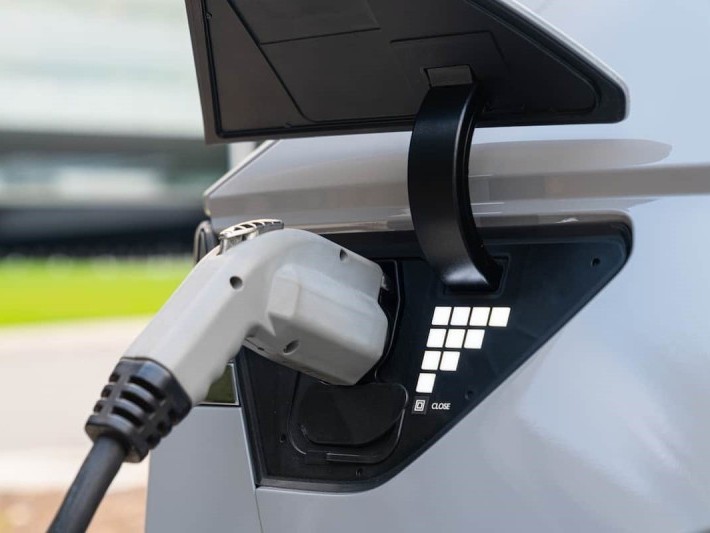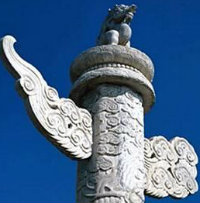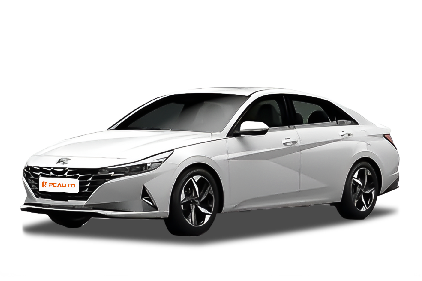Q
Does the 2018 Elantra have a timing belt or chain?
The 2018 Hyundai Elantra comes with a timing chain instead of a timing belt, a design that offers better durability and lower maintenance costs. Typically, a timing chain lasts as long as the engine itself and basically doesn't need regular replacement, whereas a belt requires inspection or replacement every 60,000 to 100,000 kilometers – otherwise, it could break and cause severe engine damage. In recent years, most Hyundai models have switched to chain designs; for example, the Kia Cerato from the same group uses similar technology, reflecting the industry trend of reducing users' long-term maintenance burdens. For owners, you just need to regularly check the condition of the chain tensioner and change the oil according to the manual. If you hear unusual metal friction noises, it might be a sign that the chain needs to be inspected. The chain layout in Elantra's Gamma series engine is compact with good noise control, but if a lack of long-term maintenance leads to oil sludge buildup, it could still affect the chain's lubrication. So, it's recommended to use fully synthetic oil that meets specifications.
Special Disclaimer: This content is published by users and does not represent the views or position of PCauto.
Related Q&A
Q
How much does it cost to replace a timing chain on a 2018 Hyundai Elantra?
The cost to replace the timing chain on a 2018 Hyundai Elantra typically ranges from 1,500 to 3,000 Malaysian Ringgit. The exact price depends on the type of repair shop and the parts used—genuine OEM parts plus labor will be pricier, while third-party garages might use compatible components to cut costs. It’s best to go with certified technicians to ensure precise installation.
Timing chains are more durable than belts and theoretically last the lifetime of the vehicle, but if you hear unusual noises or the check engine light comes on, have it inspected. Keeping an eye on the chain tensioner during regular maintenance can extend its lifespan. Hyundai’s chain systems are generally reliable, though aggressive driving or degraded engine oil can speed up wear. If your budget allows, replacing the water pump and other related components at the same time saves on future labor costs for disassembly and reassembly. The Elantra’s transverse engine design makes repairs relatively accessible, though chain layout varies by model and affects job difficulty.
Q
How much is a 2018 Hyundai worth?
The specific value of a 2018 Hyundai depends on factors like model, mileage, condition, and trim level. Generally, popular models such as the Elantra or Tucson have used prices ranging from around 50,000 to 90,000 Malaysian Ringgit, with the exact figure varying based on the vehicle's condition and service history. Higher trim levels or lower-mileage examples will likely command higher prices, while base models or those with higher mileage tend to be more affordable. When evaluating a used car's value, beyond checking market trends, it's crucial to inspect the maintenance records, accident history, and regular service upkeep—all of which significantly impact the final selling price. Additionally, Hyundai holds moderate resale value compared to similar brands. It’s advisable to compare prices across multiple used car dealers or platforms before buying, and consider having the vehicle inspected by a professional service to ensure transparency about its condition. If selling, giving the car a thorough clean and addressing minor repairs beforehand can also help boost the selling price.
Q
What kind of transmission does a 2018 Hyundai Elantra have?
The 2018 Hyundai Elantra offers two transmission options depending on trim level. Base models typically come with a 6-speed manual, while higher-spec versions get a 6-speed automatic, and some markets might even throw in a sport mode for extra driving fun. These transmissions are known for smooth shifts and durability, making them solid picks for daily commutes and long highway drives. Hyundai's transmission tech focuses on fuel efficiency too – the 6-speed auto uses optimized gear ratios to keep engine revs low during highway cruising, which helps save gas. For owners looking to keep their transmission in top shape, it's worth noting the fluid change interval – generally recommended every 40,000 to 60,000 kilometers to ensure long-term reliability. And if you're someone who cares about driving feel, it pays to know the pros and cons of each type: manuals offer more engagement and control, while automatics are way more hassle-free in stop-and-go city traffic.
Q
How fast can a 2018 Hyundai Elantra go?
The top speed of the 2018 Hyundai Elantra varies by specific configuration. The version equipped with a 2.0-liter naturally aspirated engine has a top speed of approximately 195 km/h, while the 1.6-liter turbocharged version can reach around 210 km/h. Actual performance may be affected by road conditions, vehicle load, and maintenance status. This car performs steadily during high-speed cruising, with a chassis tuned for comfort, making it suitable for long-distance driving. Meanwhile, the smoothness of the 6-speed automatic transmission also enhances the driving experience. It's important to note that although the Elantra has decent power performance, safety is always the top priority. Speeding is not only illegal but also increases the risk of accidents. During daily driving, it is recommended to reasonably control the speed, regularly check tire pressure and brake systems to ensure the vehicle is in optimal condition. In addition, although the turbocharged engine can provide stronger power, it has higher requirements for fuel quality and maintenance. It is advisable to follow the manufacturer's recommended maintenance cycle and use the recommended engine oil to extend the engine's service life.
Q
How many miles will a 2018 Hyundai Elantra SE last?
The 2018 Hyundai Elantra SE can typically last between 200,000 to 300,000 kilometers with regular maintenance and normal usage. Its actual lifespan depends on factors like driving habits, road conditions, and how often you keep up with servicing. Under the hood, it's got a solid 1.6L or 2.0L naturally aspirated engine paired with a 6-speed automatic or manual transmission—proven tech that holds up well over time. Sticking to regular oil changes, transmission fluid services, and brake system check-ups will definitely help it go the distance.
The Elantra's chassis and suspension are tuned more for comfort, so after years of driving, it's smart to keep an eye on shock absorbers and bushings for wear. If you're buying used, digging into the service records and accident history is a must—good maintenance docs mean you're more likely to hit that higher end of the mileage range.
It's worth mentioning Hyundai's warranty usually covers 5 years or 150,000 kilometers, but even after that runs out, using authorized repair shops and genuine parts will help keep the car in shape. For city commuting with proper care, this Elantra should handle daily drives easily and stick around for the long haul.
Q
How much does it cost to replace a 2018 Hyundai Elantra engine?
The cost to replace the engine of a 2018 Hyundai Elantra typically ranges from RM15,000 to RM35,000. The exact price depends on the type of engine (brand-new OEM, remanufactured OEM, or used), labor costs, and the repair shop's qualifications. Authorized 4S dealerships will charge more but offer a warranty, while third-party repair shops may be more economical, though it's crucial to verify the source of their parts. It's worth noting that the engine replacement cost might be close to the vehicle's residual value, so it's advisable to first assess the economic viability of the repair. Additionally, regular maintenance such as timely oil and coolant changes can significantly extend the engine's lifespan. If you encounter unusual noises or a drop in power, have it inspected promptly to prevent minor issues from escalating into major overhauls. For high-mileage vehicles, a more cost-effective remanufactured engine option could also be considered, but be sure to choose a reputable supplier.
Q
How much is a 2018 Hyundai Elantra worth today?
Prices for the 2018 Hyundai Elantra currently range from around RM50,000 to RM80,000 in the used car market, with the exact figure depending on condition, mileage, trim level, and service history. The top-spec 1.6-liter Sport variant can fetch 10% to 15% more than the base model, while cars with under 50,000 km typically sell for RM10,000 to RM15,000 more than those exceeding 80,000 km. As a practical family sedan, the Elantra gains popularity for its reliable powertrains and low maintenance costs – especially the 1.6-liter Gamma engine paired with a 6-speed automatic, which delivers decent fuel efficiency at approximately 6-7 liters per 100 km. If you're considering a used Elantra, it's wise to check for complete service records and pay extra attention to the chassis and transmission condition, as repairs for these can get pricey. You might also want to compare it with the same-year Toyota Corolla or Honda Civic; those hold their value better despite slightly higher prices, whereas the Elantra stands out with better value-for-money and generous features like power-adjustable seats and premium audio systems on higher trims.
Q
What engine does a 2018 Hyundai Elantra Value Edition have?
The 2018 Hyundai Elantra Value Edition is powered by a 2.0-liter naturally aspirated four-cylinder engine, codenamed Nu MPI, which puts out around 147 horsepower and 132 lb-ft of peak torque. It's mated to a 6-speed automatic transmission. This engine is known for its smoothness and fuel efficiency, making it a solid pick for daily commuting. The Nu-series engine uses an aluminum block and cylinder head to keep weight down, and it's equipped with dual continuously variable valve timing technology. That helps optimize intake and exhaust efficiency, boosting both power response and fuel economy. Among its peers, the Elantra's 2.0-liter engine strikes a good balance between performance and reliability, with relatively reasonable maintenance costs—right in line with what family buyers are looking for. It's also worth noting that Hyundai typically offers long warranties on their powertrains, which further eases owners' concerns about long-term ownership. If you're craving more power, there's always the Elantra Sport with its 1.6-liter turbocharged engine, but the Value Edition really leans into practicality and value for money. It's perfect for shoppers on a budget who still want consistent performance.
Q
Does the 2018 Elantra have Apple CarPlay?
The 2018 Elantra does come with Apple CarPlay. Just plug your iPhone in via USB, and you're good to go—works with Siri voice control, navigation, music streaming, all the usual apps. It really makes driving easier and safer. Besides CarPlay, some trims might also have Android Auto, so no matter what phone you use, you're covered. Heads up though, exact features can vary a bit depending on the trim level. Definitely check with the dealer for the full specs before you buy. These days, in-car tech has become a big deal for buyers, and Hyundai's been stepping up their game here. Later models, like the Elantra from 2020 onwards, got better system response times and added cool stuff like wireless connectivity. If you're really into car tech, keep an eye on other models in the lineup with the latest infotainment systems—they usually offer even more connected features.
Q
What is the recall on the 2018 Hyundai Elantra?
The recall for the 2018 Hyundai Elantra centers on two critical issues. First, the hydraulic electronic control unit in the braking system may have a short-circuit risk, which in extreme cases could lead to brake assist failure and increase collision risks. The manufacturer will resolve this hidden danger by replacing it with an improved HECU module. Second, the wiring harness in the engine compartment may be damaged due to friction, causing a short circuit and fire risk. Technicians will inspect the wiring harness and install protective sleeves. If owners notice that the brake pedal has become hard or warning lights appear on the dashboard, they should immediately contact an authorized service center for inspection and repair. Hyundai's recall action reflects the manufacturer's emphasis on safety issues, and all involved vehicles can be repaired free of charge. It is recommended that owners regularly check the recall status on the brand's official website using the VIN code; even if the vehicle is out of warranty, the recall service is still available. For used car buyers, it is essential to check whether all recall items have been completed before purchasing the car. This not only ensures driving safety but also serves as an important reference factor in evaluating the value of used cars.
Latest Q&A
Q
How much does it cost to replace a timing chain on a 2018 Hyundai Elantra?
The cost to replace the timing chain on a 2018 Hyundai Elantra typically ranges from 1,500 to 3,000 Malaysian Ringgit. The exact price depends on the type of repair shop and the parts used—genuine OEM parts plus labor will be pricier, while third-party garages might use compatible components to cut costs. It’s best to go with certified technicians to ensure precise installation.
Timing chains are more durable than belts and theoretically last the lifetime of the vehicle, but if you hear unusual noises or the check engine light comes on, have it inspected. Keeping an eye on the chain tensioner during regular maintenance can extend its lifespan. Hyundai’s chain systems are generally reliable, though aggressive driving or degraded engine oil can speed up wear. If your budget allows, replacing the water pump and other related components at the same time saves on future labor costs for disassembly and reassembly. The Elantra’s transverse engine design makes repairs relatively accessible, though chain layout varies by model and affects job difficulty.
Q
How much is a 2018 Hyundai worth?
The specific value of a 2018 Hyundai depends on factors like model, mileage, condition, and trim level. Generally, popular models such as the Elantra or Tucson have used prices ranging from around 50,000 to 90,000 Malaysian Ringgit, with the exact figure varying based on the vehicle's condition and service history. Higher trim levels or lower-mileage examples will likely command higher prices, while base models or those with higher mileage tend to be more affordable. When evaluating a used car's value, beyond checking market trends, it's crucial to inspect the maintenance records, accident history, and regular service upkeep—all of which significantly impact the final selling price. Additionally, Hyundai holds moderate resale value compared to similar brands. It’s advisable to compare prices across multiple used car dealers or platforms before buying, and consider having the vehicle inspected by a professional service to ensure transparency about its condition. If selling, giving the car a thorough clean and addressing minor repairs beforehand can also help boost the selling price.
Q
What kind of transmission does a 2018 Hyundai Elantra have?
The 2018 Hyundai Elantra offers two transmission options depending on trim level. Base models typically come with a 6-speed manual, while higher-spec versions get a 6-speed automatic, and some markets might even throw in a sport mode for extra driving fun. These transmissions are known for smooth shifts and durability, making them solid picks for daily commutes and long highway drives. Hyundai's transmission tech focuses on fuel efficiency too – the 6-speed auto uses optimized gear ratios to keep engine revs low during highway cruising, which helps save gas. For owners looking to keep their transmission in top shape, it's worth noting the fluid change interval – generally recommended every 40,000 to 60,000 kilometers to ensure long-term reliability. And if you're someone who cares about driving feel, it pays to know the pros and cons of each type: manuals offer more engagement and control, while automatics are way more hassle-free in stop-and-go city traffic.
Q
How fast can a 2018 Hyundai Elantra go?
The top speed of the 2018 Hyundai Elantra varies by specific configuration. The version equipped with a 2.0-liter naturally aspirated engine has a top speed of approximately 195 km/h, while the 1.6-liter turbocharged version can reach around 210 km/h. Actual performance may be affected by road conditions, vehicle load, and maintenance status. This car performs steadily during high-speed cruising, with a chassis tuned for comfort, making it suitable for long-distance driving. Meanwhile, the smoothness of the 6-speed automatic transmission also enhances the driving experience. It's important to note that although the Elantra has decent power performance, safety is always the top priority. Speeding is not only illegal but also increases the risk of accidents. During daily driving, it is recommended to reasonably control the speed, regularly check tire pressure and brake systems to ensure the vehicle is in optimal condition. In addition, although the turbocharged engine can provide stronger power, it has higher requirements for fuel quality and maintenance. It is advisable to follow the manufacturer's recommended maintenance cycle and use the recommended engine oil to extend the engine's service life.
Q
How many miles will a 2018 Hyundai Elantra SE last?
The 2018 Hyundai Elantra SE can typically last between 200,000 to 300,000 kilometers with regular maintenance and normal usage. Its actual lifespan depends on factors like driving habits, road conditions, and how often you keep up with servicing. Under the hood, it's got a solid 1.6L or 2.0L naturally aspirated engine paired with a 6-speed automatic or manual transmission—proven tech that holds up well over time. Sticking to regular oil changes, transmission fluid services, and brake system check-ups will definitely help it go the distance.
The Elantra's chassis and suspension are tuned more for comfort, so after years of driving, it's smart to keep an eye on shock absorbers and bushings for wear. If you're buying used, digging into the service records and accident history is a must—good maintenance docs mean you're more likely to hit that higher end of the mileage range.
It's worth mentioning Hyundai's warranty usually covers 5 years or 150,000 kilometers, but even after that runs out, using authorized repair shops and genuine parts will help keep the car in shape. For city commuting with proper care, this Elantra should handle daily drives easily and stick around for the long haul.
View MoreRelated News

In Malaysia, which sliding door MPVs are available?
MichaelOct 30, 2025

Modern Ioniq 5 N Lands in Malaysia: Track-Level Performance Electric Vehicle is Here, Priced Possibly Below RM 400,000?
JohnSep 10, 2025

Hyundai's Big Return to Malaysia: Top 5 Models Expected
MichaelMay 30, 2025

580,000 km & 87.7% Battery Health: Ioniq 5’s Incredible Durability
MichaelMay 6, 2025

Revolutionizing Hybrids: Hyundai’s New System vs. Toyota's Hybrid System
Kevin WongApr 22, 2025
View More













Pros
Cons